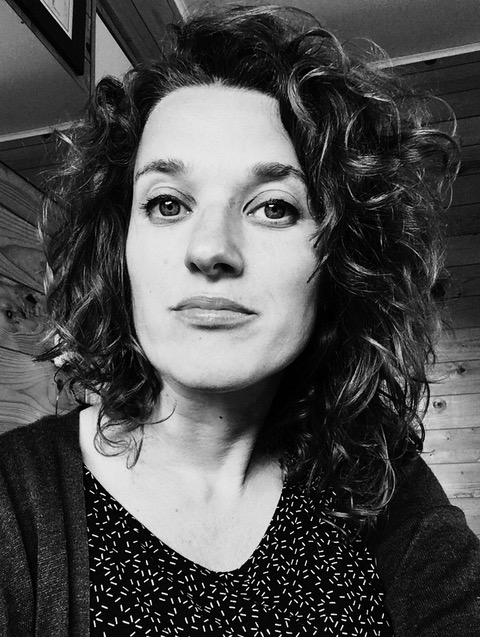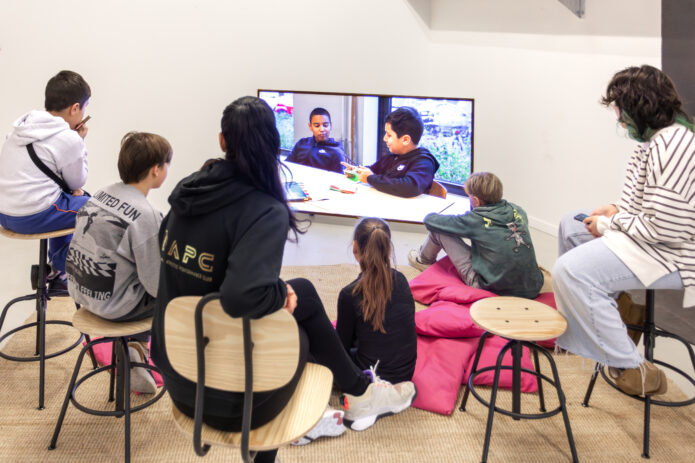 Eerste 'Shared Waters' meeting in Amsterdam met Karine Versluis. Foto: Bora Sekerci
Eerste 'Shared Waters' meeting in Amsterdam met Karine Versluis. Foto: Bora Sekerci Report: Shared Waters and Family Histories - An exchange with Camissa Museum in Capetown, SA
As we become increasingly aware of Dutch colonial crimes and how they can affect personal stories, Framer Framed developed an exchange programme with the Camissa Museum in Cape Town, South Africa to help guide young people through their family histories. Looking at the oceans that separate or connect the Netherlands and South Africa, participants in both countries explored and shared their roots through artmaking. Shared Waters also looked at the relationship between the Netherlands and other cultures that came up in the workshops.
Framer Framed and documentary photographer Karine Versluis, who published a photography book Debaltsevo, Where Are You? (2023) about her Ukrainian roots, organised four weekly sessions for 14-16-year-old Amsterdam and Capetown locals. Photography and storytelling were the mediums of exploring family histories. Karine guided the participants by making photography accessible to those irrespective of one’s proficiency with photography. Each week, the results were exchanged with those in Cape Town who were partaking in a parallel programme.
The research started by looking through old photographs and interviewing family members about their past. Karine then guided the participants through different photography techniques and terminology to inspire the group to be creative when taking their own photographs. The group then captured photographs that represented their family histories and personal identities. Afterwards, a video call was organised between Cape Town and Amsterdam to share stories and cultural exchange that, in the end, provided more nuances to the ‘black pages’ of Dutch colonial history.
After the session in 2023, the participants were thankful for the opportunity to explore their roots, which led to a greater understanding of their own cultural identities. Personal stories about the meaning of herbs and rituals, familial connections, the importance of knowing one’s past and dual identities were researched and visualised through photography. The participants learnt about their personal family histories and who they are in relation to others – both in Amsterdam and in Cape Town.
Djizé
De muzikant is mijn opa, de vader van mijn vader. Hij was een hele lieve opa met een groot hart. De man naast de foto is mijn vader, de zoon van mijn opa. Mijn vader heeft een Nederlandse moeder en een volledige Molukse vader. Dit maakt hem half Moluks. Mijn vader kan zich volledig Moluks en volledig Nederlands voelen. Ik daarentegen voel me niet zo verbonden met mijn Molukse kant en heb daar soms best wat moeite mee. Het meisje op de foto ben ik.
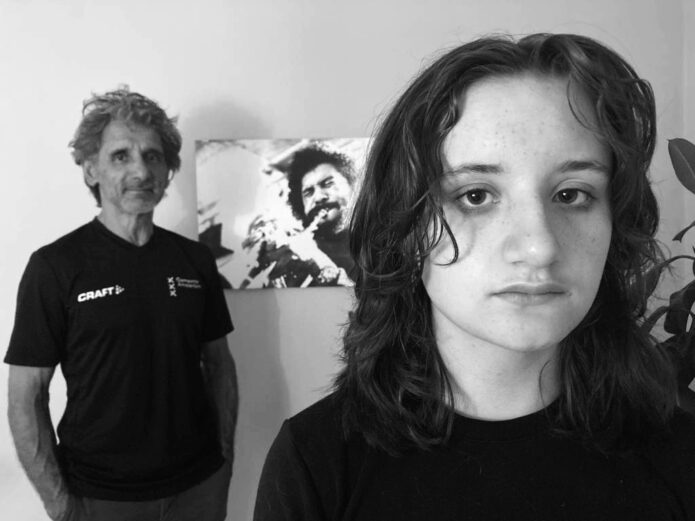
Foto: Djizé Elzinga
—
Misha
Ik heb een foto gemaakt van munttakjes. Mijn eerste gedachte die ik heb bij munt is: Nana thee. Dit is de naam die mijn familie gebruikt voor muntthee, afkomstig uit Marokko. Ik drink altijd Nana thee na het eten bij mijn familie op vrijdagavond. Tijdens die avonden eten we gerechten die vaak ook afkomstig zijn uit Marokko. Die ook gekke namen hebben waar ik nooit bij stil sta. Tijdens het eten worden er ook soms verhalen verteld over hoe bijvoorbeeld vakanties vroeger waren, maar ook over familieleden die ik nooit heb ontmoet.
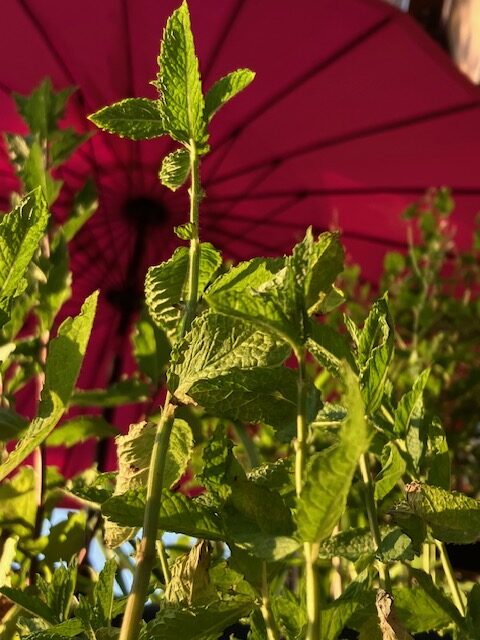
Foto: Misha Kanner
—
Paula
Dit is elke dag
Op de plek waar ik het meest ben
Met mensen die het meest dicht bij mij staan
Die ik het allerbeste ken
Het allermeeste zie
Maar nu kijk ik ze niet aan
Nu zijn ze anoniem
Want hoe weet ik wie zij zijn
Als ik niet weet wat zij waren?

Foto: Paula Raith
—
Julia
The easy availability of pin cushion proteas in the Netherlands – flowers indigenous to the Cape – shows how past colonial connections have forged contemporary links. The immigration of the flowers but also of people between South Africa and the Netherlands is no coincidence. This photograph represents my roots – it is taken in my student house in Utrecht, the Netherlands; yet it depicts two very South African symbols: dried proteas hanging from the ceiling and in the shadow underneath a cloth with zebras printed on it. The Netherlands and South Africa – my dual nationalities.
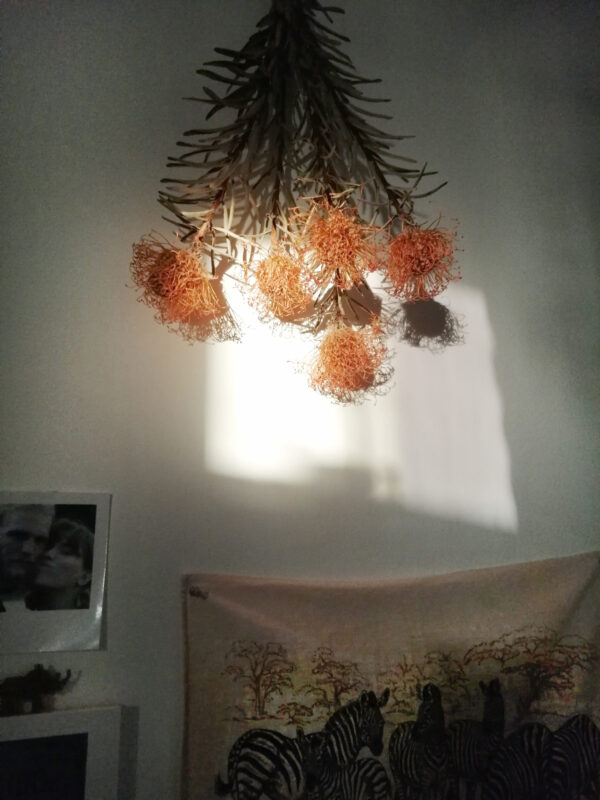
Foto: Julia Krantz
Education / Shared Heritage / Colonial history / South Africa /
Exhibitions
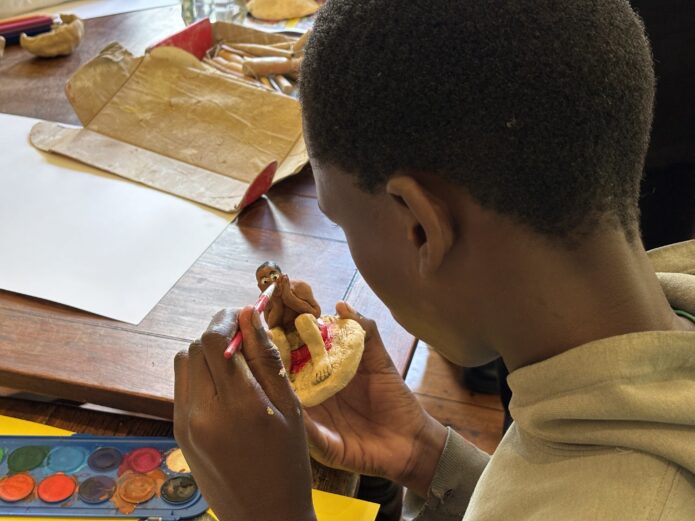
Exhibition: Shared Waters
Presentation of young people in Amsterdam and Cape Town searching for their roots, for mutual cultural connections past and present.
Agenda
Education project: Shared Waters
Exchange project with the Camissa Museum (Cape Town, SA)
Network
